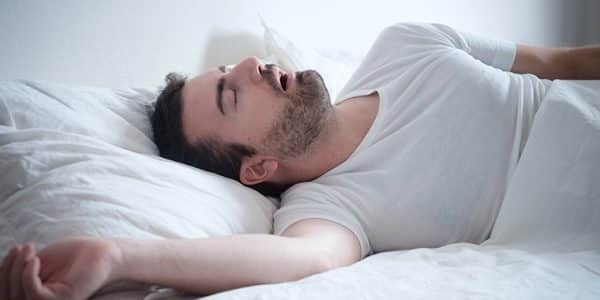In this post, we’ll tell you why adult sleep apnea is so dangerous. And why is it necessary to urgently treat apnea if you or your family have symptoms? People often don’t take snoring or waking up in the middle of the night seriously. However, their cause – sleep apnea or respiratory arrest – is very dangerous and can lead to serious consequences.
Apnea is a suspension of breathing. It can take place in a wide variety of conditions. For example, after taking quick deep breaths. Adult sleep apnea, however, is a distinct disease.
There are two main types of adult sleep apnea:
Obstructive – Holding the breath is associated with mechanical difficulties. The elderly or overweight people suffer from this ailment. Their airways become very narrow. Smokers enter the risk zone due to an inflamed nasopharynx. And alcohol lovers – because of overly relaxed muscles.
Central – The parts of the brain responsible for breathing stop sending signals to the muscles. Such apnea occurs after taking opiates, with heart disease, and after a stroke.

Sleep Apnea
The main signs of illness that you may notice if you sleep next to a sick person are loud snoring and intermittent cessation of breaths. After a “lull” for ten seconds, people suddenly begin to snore loudly and toss and turn in their sleep.
While awake, adult sleep apnea can be suspected by looking at:
• Well-being in the morning. If you have difficulty breathing, your head will hurt a lot after waking up;
• Lack of vigour. During the day, a person is sleepy, inattentive and absent-minded, because he really did not have a rest at night;
• The process of falling asleep. Despite the fatigue, it will be very difficult to fall asleep;
• Memory and attention.
A weak course of the disease does not always require intervention. But you should definitely consult a doctor if loud snoring disturbs the peace of loved ones. Or sleepiness during the day is so strong that you doze off even while driving.
In a state of wakefulness, we can consciously hold our breath for 1-2 minutes and then, of our own free will, resume it. For example, when swimming. However, in a dream, the body has to solve this problem on its own.
During a seizure, signals are sent to the brain that the oxygen level in the blood is too low. As a result, the person wakes up instantly. In addition, his blood pressure rises sharply, which is why there is a risk of angina pectoris and stroke. And tissues with a lack of oxygen become less susceptible to insulin, a hormone that controls sugar levels. That is why there is a lack of strength in the body.
Stopping breathing negatively affects all parts of our body. Without air, we can live no more than ten minutes. And the longer the attacks of adult sleep apnea last, the more often they occur during rest, the more severe the consequences for the patient.
Difficulty breathing during sleep has many consequences. From relatively harmless ones, such as dry mouth and headaches, to disability and even death from prolonged respiratory arrest without awakening. A patient without treatment runs the risk of earning:
• Chronic fatigue
• Heart disease
• Type II diabetes mellitus
• Various liver pathologies
• Arrhythmia, angina pectoris, and heart failure
• Hypertension
• Bronchial asthma
• Heart attack, stroke, cerebral haemorrhage – one of the most severe consequences of oxygen starvation and a sharp rise in pressure
• In very rare cases, a fatal respiratory arrest can occur.
If you or your loved ones notice symptoms such as loud snoring and shortness of breath during sleep, it is advisable to consult a specialist as soon as possible. If it was not possible to get to a doctor-somnologist, you should contact a neurologist and an otolaryngologist. They will be able to identify and eliminate the cause of the apnea.
Close people will help measure the duration of the pauses in breathing. And on a general examination, they will check the pressure and find out the state of the heart. The most reliable diagnostic methods are polysomnography, 24-hour ECG, and heart rate monitoring. They track all changes in the body: breathing, heart rate, nerve activity, and electrical impulses.
Apnea treatment is directly related to its cause. Therefore, common methods are removing obstructions in the nasal passages and correcting the nasal septum. Also, devices have been used that support the organs of the mouth and throat in the correct position.
Prevention coincides with the mildest form of therapy. It is necessary to develop a healthy lifestyle, reduce weight to normal, stop using alcohol and tobacco. Training the muscles of the throat will help: playing wind musical instruments or singing. The habit of sleeping on your side greatly reduces symptoms and makes breathing easier. And, of course, you will have to treat all ENT diseases in a timely manner.
Do you have any questions about adult sleep apnea? Let us know, and in case you need some medical help, feel free to consult our medical professionals at Top Nova!
© 2024 Top Nova Orthodontics. All Rights Reserved.